Court rules that unborn babies are ‘organisms’: a look behind the headlines
Seven years ago, a baby girl (who cannot be named for legal reasons) was born to a 19 year old mother who had drunk heavily throughout her pregnancy, despite warnings from healthcare workers that her drinking could damage her baby.
This girl and, indirectly, her mother, are now making headlines. The girl was badly harmed by her mothers drinking. She now has Foetal Alcohol Spectrum Disorder (FASD), which has lead to retarded growth, facial abnormalities, intellectual impairment and other major complications. For the last five years her Local Authority has tried to secure Criminal Injuries Compensation, through the courts, to help with her care costs and boost her quality of life.
All the Courts who have heard the case agreed that the girl’s FASD is a direct result of alcohol abuse in pregnancy.
However today the Court of Appeal ruled that she could not be awarded compensation for the damage done to her during pregnancy because she was not a legal ‘person’ while in the womb, but rather she was an ‘organism’. So a crime could not have been committed against her, as a fetus is not a ‘person’.
Here is a little background to some of the machinations and manoeuvrings behind the scenes with this case.
Although the case ruling has turned on whether an unborn child can be considered a ‘person’ for the purposes of the law, the media coverage has been very different.
The media coverage has not centred on the young girl herself, nor on the dangers of drinking in pregnancy, nor on the impact of FASD. Instead, it has been all about the dangers of criminalising pregnant women who drink. It would have been difficult to miss headlines a few weeks ago such as:
‘Mums to be who drink could be branded criminals’
The media has been taken over (taken in?) by leading abortion provider, British Pregnancy Advisory Service,BPAS, and sister organisation, Birthrights, who intervened in the case to prevent the girl getting any compensation for her disabilities. Why?
They claimed that granting her compensation would impact women’s autonomy to choose to drink in pregnancy. It would restrict their ‘reproductive rights’. And it could ‘criminalise’ women who drink in pregnancy.
These may sound like logical arguments, but the claim that this ruling could have resulted in a whole new tranche of criminalised behaviour was never true and BPAS knew that! It was naked scaremongering. This has been a civil, not a criminal case. It would not directly affect criminal interpretation of Section 23 of the Offences Against the Person Act 1861. And it would certainly not be in the public interest for the Crown Prosecution Service to charge alcoholic mothers, as helpfully explained here.
So the real reason why BPAS and Birthrights opposed the case is because the Court might have ruled that an unborn child could be considered a ‘person’ for the purposes of the Offences Against the Person Act, which would not have directly affected the criminal law, but would have set a legal precedent for treating preborn babies as people. They correctly realised that hadthe Judgment found that unborn children have legal personality for the purposes of s23, the effect could be far-reaching.
Thus ‘criminalising pregnant women’ was an effective smokescreen to hide behind, to be able to oppose the case. It would hardly have looked good to be seen to be collaborating to prevent a severely disabled seven year old receiving compensation.
The judgement today has indeed turned on whether an unborn child can be considered ‘another person’ for the purposes of s23. It agreed that the child has FASD as a direct result of her mother’s excessive alcohol consumption, but the child was not a person when the poisoning onhealthy famvir took place. Hence, no crime was committed and no compensation is due. That is profoundly ironic given that section 58 of the very same Offences against the Person Act (emphasis mine) still provides a sentence of life imprisonment – the same penalty as for murder – for abortion. The Abortion Act 1967 did not actually decriminalise abortion. It just made it ‘lawful’ in a limited number of strict circumstances.
That is a bit of background to the manoeuvring behind the scenes with this case. But what are some of the broader implications we can draw from the case itself, and the ruling today?
- The legal position of the unborn child in UK law has become even more convoluted and incoherent: killing an unborn child is illegal (except under limited circumstances) but maiming or otherwise harming is allowed.
- Legally, a baby minutes before birth, even at 40 weeks, is just a mere ‘organism’. Yet a baby of 24 weeks gestation in a neonatal unit is a ‘person’ with full legal rights. A baby minutes before birth (indeed, months before birth) is clearly a baby. Modern technology and 4D imaging completely exposes these legal and moral contradictions.
- A severely disabled child has been denied compensation to help with her care costs simply because the injury happened in a specific location.
- A group of campaigners has been so desperate to stop any possible infringing of adult liberties, and defend abortion at all costs, that they have campaigned to prevent compensation being granted to a disabled child.
- The media coverage has missed the opportunity to highlight the dangers of drinking even a small amount of alcohol in pregnancy. When a pregnant woman drinks alcohol, the levels of alcohol in her baby’s blood rise as high as her own. Because the baby’s liver is immature, it can’t break down the alcohol as fast as an adult liver can. This means the baby is exposed to greater amounts of alcohol for longer than the mother, giving rise to the risk of FASD where the mother drinks to ‘excess’(usually undefined).Moreover, the increasing strength of alcoholic drinks, coupled with the widespread use of larger wine glasses, means that many who think their drinking habits are safe may actually be binge drinking.Even a father’s drinking may have an effect. Depending on the size and volume, two glasses of wine could actually be six units.
- The media (and BPAS) have failed to acknowledge and highlight the terrible impact of FASD. FASD is characterised by stunted growth in the womb, abnormal facial features, and permanent damage to the central and peripheral nervous systems. Brain damage is the most prevalent consequence, resulting in impaired intellectual function alongside a range of other neurological, psychological and behavioural disorders. As Europe’s number one binge drinking nation, incidence here is likely to be near 5%, though few studies have been done on prevalence.
But one positive outcome – for myself at least – from this case has been the opportuity to hear about, and learn from, the inspirational work of the FASD network. Not only does this network support and care for hundreds of people suffering from FASD, they also care for the carers, raise awareness, produce resources, do research, and fill some of the many gaps left by the lack of government funding and support.
Yet again, it’s voluntary sector organsations that have to step into the gap to help those who receive no other support or indeed, compensation. These organisations rarely make stories for the headlines. Unfortuntely, ‘criminalising pregnant women’ gets the coverage instead, which is why it’s always useful to know a bit of what is behind the headlines.

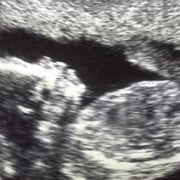
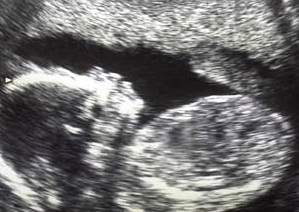

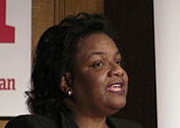
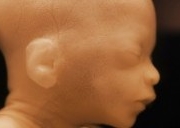

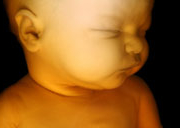
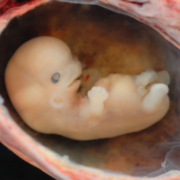



Leave a Reply
Want to join the discussion?Feel free to contribute!